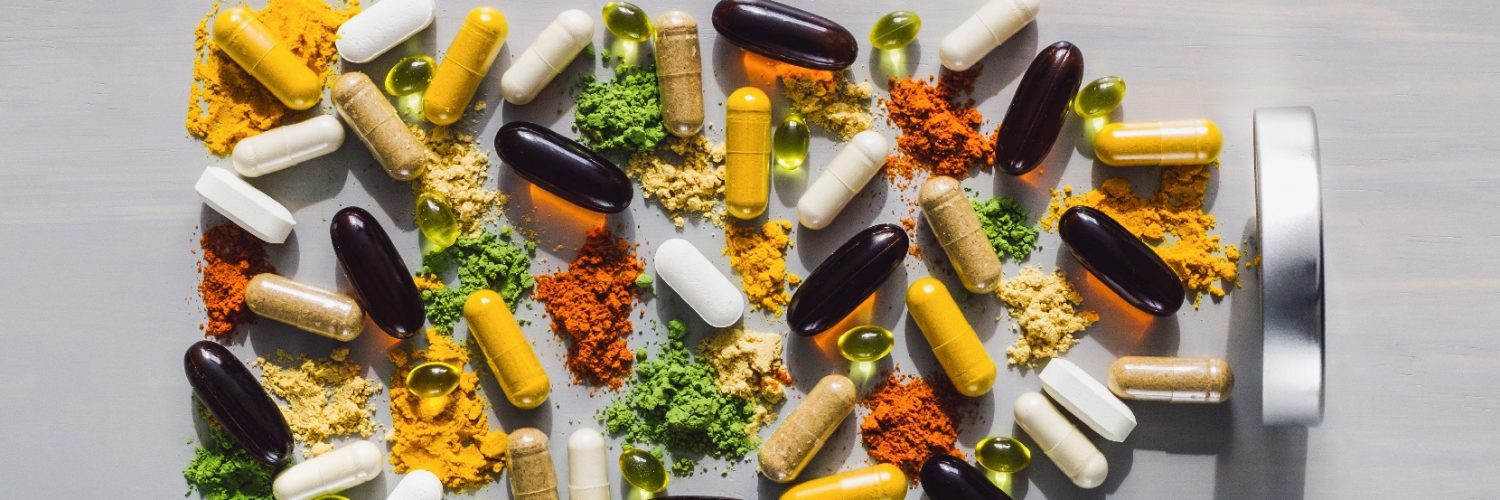In recent years, growing interest in natural health has led to a booming market for dietary supplements. As more and more products hit the market, there has been some concern about the safety and quality of these supplements, which do not have to pass through the same regulatory hoops that pharmaceuticals do. There is even a common misconception that dietary supplements are not regulated at all.
But what’s the real story? What does the FDA do to assure that your supplements are safe and marketed truthfully? What do the best supplement brands do to ensure the quality of their products? How do you know if you can trust the supplements that you take? As a dietician and a supplement formulator, I know this territory well — so let’s clear some things up.
Are Supplements Regulated?
You bet. Dietary supplements are tightly regulated under the Dietary Supplement Health and Education Act (DSHEA) of 1994, as well as the federal Good Manufacturing Process standards (GMPs), which ensure the identity, purity, quality, strength, and composition of dietary supplements.

The Food and Drug Administration (FDA) and the Federal Trade Commission (FTC) are tasked with assuring that dietary supplements are properly sold. It’s their job to verify that supplements pose no health risk, have not been adulterated, are accurately labelled, and have scientific substantiation for their health claims, among other mandates.
One thing that throws people off is the FDA disclaimer included with every dietary supplement, which warns: “These statements have not been evaluated by the FDA. This product is not intended to treat, cure, or prevent any disease.” What this means is that the FDA has not evaluated the supplement’s effectiveness for its intended health benefits.
Only an approved drug can legally claim to treat, cure, or prevent a disease. Supplements are not considered drugs, because they are made with natural ingredients readily found in foods. But here’s the trick: although supplements are not evaluated in their totality, the way drugs are, every individual ingredient is still evaluated by the FDA for its safety and health value.
How does this work? Some ingredients are Generally Recognized as Safe (GRAS), because they have been used for hundreds of years without posing any general health risk. Any ingredient that is not GRAS must be submitted to the FDA for approval, paired with supporting peer-reviewed science that shows statistically significant results linked to the dose used in the supplement.
There are still some less reputable companies out there that will try to sneak poorly manufactured or dishonestly marketed supplements through the cracks. But the FDA and the FTC possess powerful tools to enact criminal charges against “bad apples” through warning letters, mandatory recalls, and even felony prosecution.
What Other Quality Controls Are There?
For some shoppers, FDA and FTC quality controls aren’t enough to put their minds at ease. The best supplement brands understand this and have established their own protocols for additional safety and quality assurance.

One of the most reliable quality control methods is testing by independent third-party labs. A lab analysis can verify whether a supplement contains the ingredients it says it does, in the amounts and potencies given on the label. It will also verify that the supplement is free of any microbial contaminants or heavy metals.
Though third-party testing is not mandated by the FDA, it is considered standard practice by the most reputable supplement brands. NatureWise, for instance, submits all of their raw ingredients to lab testing to ensure purity and potency before creating their supplements. Then, at the end stage, the finished supplements are again tested by third party labs.
The good news is that industry practices are changing for the better and the trend is toward better quality control. Improvements are being made in the sensitivity of testing methods, and more and more companies are offering third-party certifications to put the customer’s mind at ease.
There is also a growing trend toward better transparency about how supplements are made. Proprietary blends are being phased out, with more companies choosing to disclose the exact amounts of the ingredients in their formulas. There is also more information available about the ingredients being used.

NatureWise is once again leading this industry trend with their groundbreaking mobile transparency program, which gives customers instant access to information about any NatureWise product through their phone, including when and where those supplements were made, details about every ingredient, and even the certificate of analysis that shows the lab test results.
Between national regulations, third-party testing, and increased transparency, there are multiple ways to verify that your supplements are not only safe to take, but are made with care. That’s good news for everyone who prefers to supplement their health the natural way.
